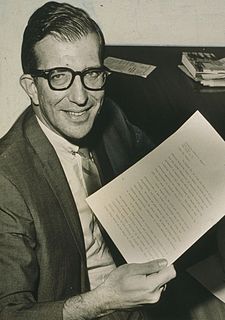A Quote by Henry Paulson
As a steward of the U.S.economy and financial systems, the Treasury has helped lay the groundwork for the American economy to become a model of strength, flexibility, dynamism, resiliency. This is a system that generates growth, creates jobs and wealth, rewards initiative, and fosters innovation.
Related Quotes
We can't have extraordinary dynamism, innovation, and change in the economy and expect to have predictability and stability in our personal lives. It's not as if there are these big, giant institutions existing between us and the economy. In fact, these institutions have become tissue-thin. There is no mediation anymore. We are the economy; the economy is us.
There are two issues that people sometimes confuse, but they're very closely related. There is the strength and the stability of the American financial system. And it's very important that that system remain stable and remain strong and lending is very important to consumers. Secondly, the economy. And what has gone on in financial system is impacting the economy. And as the economy is turning down, it is very important that lending continue to be available and be available to consumers. So what we're doing with this facility is to support - is to support consumer lending.
It does happen to be a historical fact that my husband served as president for eight years. And there's a lot that happened which helped the American people during those eight years. I want an economy that creates more jobs. And that's a lot of jobs. I want an economy that gets back to raising incomes for everybody.
It's time to admit that public education operates like a planned economy, a bureaucratic system in which everybody's role is spelled out in advance and there are few incentives for innovation and productivity. It's no surprise that our school system doesn't improve: It more resembles the communist economy than our own market economy.
The wealth of the nation is its air, water, soil, forests, minerals, rivers, lakes, oceans, scenic beauty, wildlife habitats and biodiversity... that's all there is. That's the whole economy. That's where all the economic activity and jobs come from. These biological systems are the sustaining wealth of the world.
We need to remake and reinvent our housing system so that it supports the flexibility and mobility of our economic system broadly. Home-ownership is rewarded by the federal tax code, which made great sense when that piece of the American Dream, and all the consumption that came with it, was essential to rebuilding the economy. These days, however, it feels like a huge penalty to people who want to travel light within the new mobile economy without a mortgage to hold them back.
When you've got a economy in which 40 percent of economic growth is happening in the financial sector, that turns out that was all an illusion, that it wasn't growth based on real products and services, but just a bunch of paper shuffling and a house of cards, then what's gonna emerge, at some point, is a sense of resentment, a sense that the system's rigged, and it's not working for ordinary people. And it's not fulfilling the basic American dream.


































